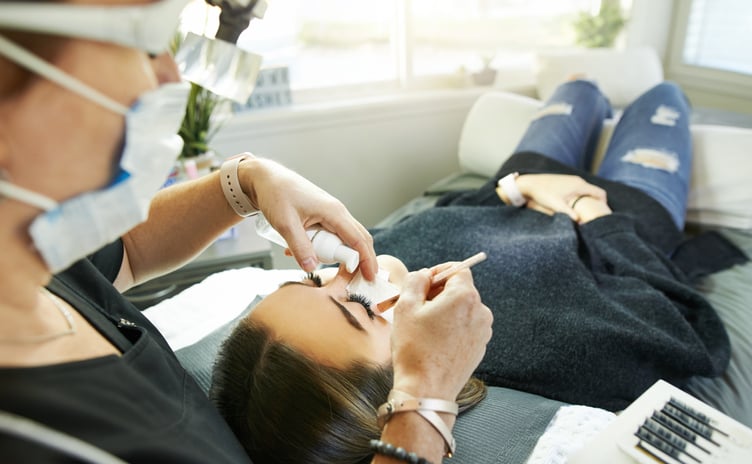
If you keep up with the world of cosmetology, you’ve likely heard about legislation regarding deregulation of cosmetology services. Legislation is already underway in many states to deregulate cosmetology services. Such deregulation simply means that someone who wants to be a manicurist could do so without any special training or assessment of their knowledge of the field and relevant safety practices.
There are both proponents and opponents of the regulation of the cosmetology industry. Those who oppose regulation assert that professionals practicing in the field of cosmetology do not need specific training or testing to demonstrate competence, while those who support regulation underscore the importance of education and assessment in order to demonstrate minimal competence. Proponents of the regulation of cosmetology services understand that such professions require proper oversight and regulation in order to ensure that the risk of injury, infection, and the spread of disease is minimized for both the general public and professionals practicing in the field.
Although a “bad haircut” never killed anyone, there is more to cutting hair than cutting in a straight line, and there is more to hair coloring than getting the perfect shade of red. Proper disposal and disinfection of instruments protects clients from the spread of disease or infection, and testing chemicals before use on the skin or hair helps identify allergies or other adverse reactions. These are the kinds of critical knowledge components that licensing educational programs teach and that licensing exams assess. Cosmetologists are exposed to chemicals, sharp objects, and bodily fluids in their daily work and must have the proper education and relevant knowledge to appropriately handle such situations. Without practicing proper sanitation procedures, both clients and cosmetology professionals are at risk of spreading serious diseases, such as hepatitis and MRSA.
As a leader in the cosmetology test development space, PSI understands the importance of regulating cosmetology services and works closely alongside numerous state agencies to support the test development of cosmetology licensing exams. One of PSI’s primary goals in developing licensing exams is to protect the general public from harm and provide a defensible measure of assessing the minimal level of competence needed to safely practice in a given field. Licensing exams and other educational requirements ensure that the individuals who practice in these fields are equipped with the minimal level of competence needed to ensure that the public is protected. For example, PSI’s cosmetology exams focus largely on safety and infection control, including topics such as client protection and workplace cleaning and disinfection. These topics are of utmost importance for professionals practicing in the cosmetology field in order to safely perform the tasks associated with a given cosmetology service.
While discussion and legislation regarding deregulation of cosmetology services is ongoing across the nation, there is still room to voice concerns over the issue. If this issue lies close to your heart, take some time to explore the relevant legislation in your state and voice your concerns. Most states have a State Board of Cosmetology that would certainly be interested to hear your thoughts on this topic!


.jpg) Sarah Bowen is an Industrial/Organizational Psychologist and Consultant at PSI. She works with a variety of clients in all industries to empower people and organizations to reach their full potential by leveraging human capital and resources. Sarah currently supports the test development of PSI’s Barber and Cosmetology licensing examinations. Sarah received a Master of Arts degree in Work and Organizational Psychology from Maastricht University in the Netherlands, and a Bachelor of Arts degree in Economics and Organizational Management from Agnes Scott College.
Sarah Bowen is an Industrial/Organizational Psychologist and Consultant at PSI. She works with a variety of clients in all industries to empower people and organizations to reach their full potential by leveraging human capital and resources. Sarah currently supports the test development of PSI’s Barber and Cosmetology licensing examinations. Sarah received a Master of Arts degree in Work and Organizational Psychology from Maastricht University in the Netherlands, and a Bachelor of Arts degree in Economics and Organizational Management from Agnes Scott College.